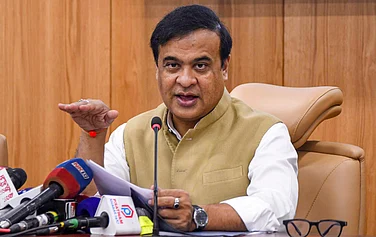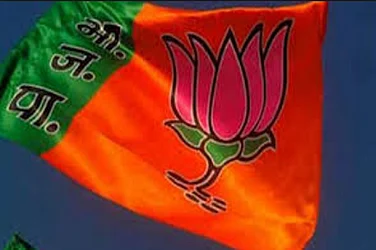They still do. Only, India is a different story today. The western world’s favourite disaster zone, spurred by the mantra of Manmohanomics, is changing. Rapidly. Perhaps permanently. And, in the bargain, the profile of India’s foreign press corps is transmuting too.
The tribe of informed analysts is growing. Slowly but surely. Former Financial Times South Asia bureau chief John Elliott is back in New Delhi after a break of six years. Seasoned Australian journalist Hamish McDonald has chucked up his job with the Far Eastern Economic Review and chosen to stay on in India as a freelancer. Erstwhile diplomats like Bernard Imhasly and John Zubrzycki have dumped promising foreign service careers to hit the hot and dusty Indian trail as reporters. Tim McGirk carries on as a super-stringer in Delhi despite the financial problems that plague The Independent back in London. Anthony Spaeth, now with Time magazine, has been in India for eight years, switching jobs to stay on.
So India is right back in the news. The right kind of news. As the Great Indian Bazaar expands, more and more western newsmen are setting up base in India. And staying put. In certain notable cases, as freelance correspondents. "India is a great place to be a journalist in," declares Bernard Imhasly, who strings for a Swiss daily, Neue Zuercher Zeitung, besides several German papers and the BBC’s German service.
Elliott, who spent five years in Delhi after setting up the first South Asia bureau of the Financial Times in the ’80s, has returned as a business analyst because he finds India "fascinating". He knows the country well and has very good friends here. As does McDonald. "India," he says, "is a place from where great business stories emanate today."
And, to top it all, it is a perfect gateway to the rest of the region. For McDonald—he now writes for the Australian Financial Review and the South China Morning Post—India is a vast land that never runs out of stories. "There is so much to cover. Even when I go to the regional centres —Bangalore, Hyderabad, Ahmedabad— I come back with a whole host of reports," he says.
But, surely, it cannot be hunky-dory all the way. It isn’t, admits McDonald: "As a freelancer, I cannot travel indiscriminately. I have to be sure that the stories I pursue are worth the investment. A trip to Bombay, for instance, can set you back quite a bit financially." But being a freelancer does have its advantages. He is free, says McDonald, to choose his own pace.
Where exactly do pecuniary considerations figure? Says Juliet Reynolds, an art critic who has lived in India for 21 years and has contributed to The Spectator and the Far Eastern Economic Review, among others: "If you have money coming from abroad, it allows you to live pretty well." Indeed, hard currency goes very far here. Moreover, the quality of life has improved perceptibly in Delhi over the last few years.
But that is not Elliott’s only reason for returning. After leaving India in 1988, he was FT’s Hong Kong correspondent for three years. But when told to return to London as the daily’s world trade editor, he resigned and took up a three-year assignment as public affairs adviser to the Hong Kong chief secretary. "Having spent 25 years in FT, I had had enough. I wanted to do something different," he explains.
And India was different. A four-month visiting fellowship at the Rajiv Gandhi Institute for Contemporary Studies brought Elliott back to Delhi to do a comparative paper—India and China: Asia’s New Giants. It had people talking: the debate centred on his contention that China’s statistics are grossly exaggerated and that India is doing better. When the fellowship expired, Elliott chose to settle down in Delhi as the South Asia business correspondent of The Economist. "
As India opened up," says Elliott, "I saw the need for commentators and analysts, and not just journalists, to explain India to the international investment community." In Hong Kong, he points out, he found dozens, if not hundreds, of China-watchers. "But there are not many India-watchers in the world."
McDonald, too, is an inveterate India-watcher. He arrived in Delhi in late 1990 soon after the fall of the V.P. Singh government. At the end of his term, he broke away from the Far Eastern Economic Review to become a freelancer. "In the past," he points out, "foreign news in western papers used to be limited to political or strategic issues. Business editors devoted little space to economic affairs unless they pertained to Japan or Hong Kong."
But in the last two years, all that has changed. "Today, the focus is on India," says McDonald. "Business is about making money as well as losing it. Fortunately, more people are making money in India today than losing it. So the stories are positive."
VERY true, says Imhasly, a Swiss national who quit the foreign service in late ’89. "But as more western journalists come into India, there is a clear change in the way newspapers are approaching the region," Imhasly argues. "With rents shooting up and other costs of operation increasing, many foreign papers, especially the smaller ones, are relying on stringers."
Elliott, however, disagrees. Western papers are doing quite well in India, he asserts. The leading American dailies have staff correspondents here. FT is still here. The Times of London still has a regular correspondent in Delhi. The Wall Street Journal is expanding. Caroline Lees is here as the first regular Sunday Times person in India in many years. "British interest in India did wane for a while, but it is picking up again," corroborates Lees, who has been in Delhi since early this year. "My paper attaches great importance to India."
And it is not just the papers and magazines that are stepping up their presence in India, foreign correspondents posted in India now are staying much longer than their predecessors. As Spaeth points out, Mark Tully was a rarity during his time. Today, he wouldn’t be one. "The trend is catching on," adds Spaeth, who has been in India since July 1987, having worked for The Christian Science Monitor and the Asian Wall Street Journal before joining Time. McGirk has been here for six years, McDonald for five and the likes of Christopher Thomas of The Times for equally protracted, if not longer, stretches.
With a swelling brigade of foreign correspondents choosing to make India the centre of their professional universe, the subcontinent can only receive a better deal. It need no longer be a remote, inconsequential corner. Either on the world map or on the pages of western newspapers.


























